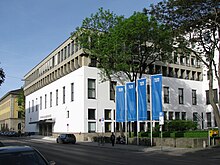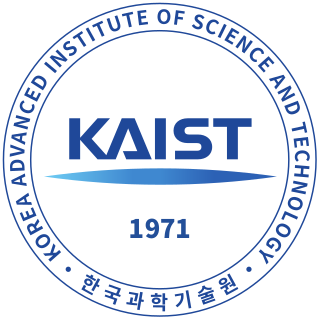
The Korea Advanced Institute of Science and Technology (KAIST) is a national research university located in Daedeok Innopolis, Daejeon, South Korea. KAIST was established by the Korean government in 1971 as the nation's first public, research-oriented science and engineering institution. KAIST is considered to be one of the most prestigious universities in the nation. KAIST has been internationally accredited in business education, and hosts the Secretariat of the Association of Asia-Pacific Business Schools (AAPBS). KAIST has 10,504 full-time students and 1,342 faculty researchers and had a total budget of US$765 million in 2013, of which US$459 million was from research contracts.

The Technical University of Munich is a public research university in Munich, Germany. It specializes in engineering, technology, medicine, and applied and natural sciences.
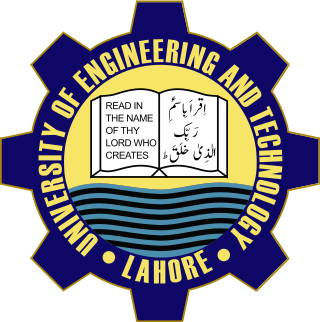
The University of Engineering and Technology, Lahore is a public university located in Lahore, Punjab, Pakistan specializing in science, technology, engineering, and mathematics (STEM) subjects. It is the oldest and one of the most selective engineering institutions in Pakistan.
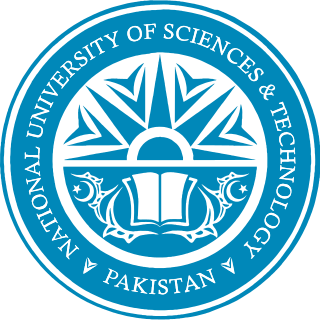
The National University of Sciences & Technology (NUST) is a multi-campus public research university with its main campus in Islamabad, Pakistan.

The University of Klagenfurt is a federal Austrian research university and the largest research and higher education institution in the state of Carinthia. It has its campus in Klagenfurt.

The Technische Universität Darmstadt, commonly known as TU Darmstadt, is a research university in the city of Darmstadt, Germany. It was founded in 1877 and received the right to award doctorates in 1899. In 1882, it was the first university in the world to set up a chair in electrical engineering. In 1883, the university founded the first faculty of electrical engineering and introduced the world's first degree course in electrical engineering. In 2004, it became the first German university to be declared as an autonomous university. TU Darmstadt has assumed a pioneering role in Germany. Computer science, electrical engineering, artificial intelligence, mechatronics, business informatics, political science and many more courses were introduced as scientific disciplines in Germany by Darmstadt faculty.
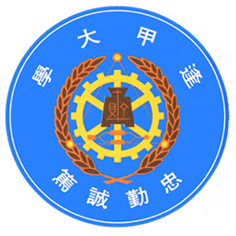
Feng Chia University is a private research university in Taiwan, located in Taichung. It was named after Chiu Feng-Chia one of the leaders of the military resistance against the Japanese invasion of Taiwan in 1895.

The COMSATS University Islamabad (CUI), formerly known as COMSATS Institute of Information Technology (CIIT), is a public university in Pakistan. It is a multi-campus university with its principal seat located in Islamabad. Comsats was envisioned as Pakistan's first exclusive Institute of Information Technology. In the latest QS University Rankings, CUI ranked 7th in Pakistan and 801-1000 in the world. Nationally it is ranked top-most in Computer Sciences and IT category. COMSATS University Islamabad (CUI) is under the administration of the Commission on Science and Technology for Sustainable Development in the South.

Saarland University is a public research university located in Saarbrücken, the capital of the German state of Saarland. It was founded in 1948 in Homburg in co-operation with France and is organized in six faculties that cover all major fields of science. In 2007, the university was recognized as an excellence center for computer science in Germany.

TU Dortmund University is a technical university in Dortmund, North Rhine-Westphalia, Germany with over 35,000 students, and over 6,000 staff including 300 professors, offering around 80 Bachelor's and master's degree programs. It is situated in the Ruhr area, the fourth largest urban area in Europe. The university pioneered the Internet in Germany, and contributed to machine learning.

The Karlsruhe Institute of Technology is a public research university in Karlsruhe, Germany. The institute is a national research center of the Helmholtz Association.

The Technische Universität Ilmenau is a German public research university located in Ilmenau, Thuringia, central Germany. Founded in 1894, it has five academic departments (faculties) with about 4,900 students. Teaching and research are focused on the fields of technology, mathematics and natural sciences, business and media.

Manfred Broy is a German computer scientist, and an emeritus professor in the Department of Informatics at the Technical University of Munich, Garching, Germany.
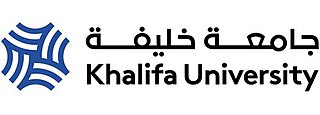
Khalifa University is a public research university located in Abu Dhabi, United Arab Emirates. It was ranked as the 181st best university in the world by QS world university rankings of 2023.

The Department of Computer Science is a department of the Technische Universität Darmstadt. With a total of 36 professorships and about 3,700 students in 12 study courses, the Department of Computer Science is the largest department of the university. The department shapes the two research profile areas "Cybersecurity (CYSEC)" and "Internet and Digitization (InDi)" of the university.

The TUM School of Engineering and Design is a school of the Technical University of Munich, established in 2021 by the merger of four departments. As of 2022, it is structured into the Department of Aerospace & Geodesy, the Department of Architecture, the Department of Civil & Environmental Engineering, the Department of Energy & Process Engineering, the Department of Engineering Physics & Computation, the Department of Materials Engineering, the Department of Mechanical Engineering, and the Department of Mobility Systems Engineering.

The TUM School of Life Sciences is a school of the Technical University of Munich, located at its Weihenstephan campus in Freising. It encompasses the life sciences, in particular biology, agricultural science, food technology, landscape architecture, biotechnology, and nutrition.

The Campus Garching is a campus of the Technical University of Munich and a number of other research institutes, located around 10 km north of Munich in Garching. At the same time, it constitutes a district of the city. With more than 7,500 employees and around 17,000 students, it is one of the largest centers for science, research and teaching in Germany.
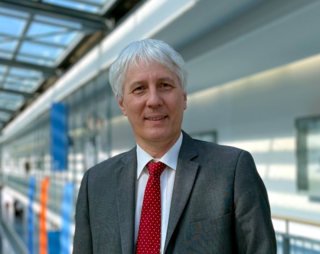
Alois Christian Knoll is German computer scientist and professor at the TUM School of Computation, Information and Technology at the Technical University of Munich (TUM). He is head of the Chair of Robotics, Artificial Intelligence and Embedded Systems.

The TUM School of Natural Sciences (NAT) is a school of the Technical University of Munich, established in 2022 by the merger of various former departments. As of 2022, it is structured into the Department of Biosciences, the Department of Chemistry, and the Department of Physics. The school is located at the Garching campus.

